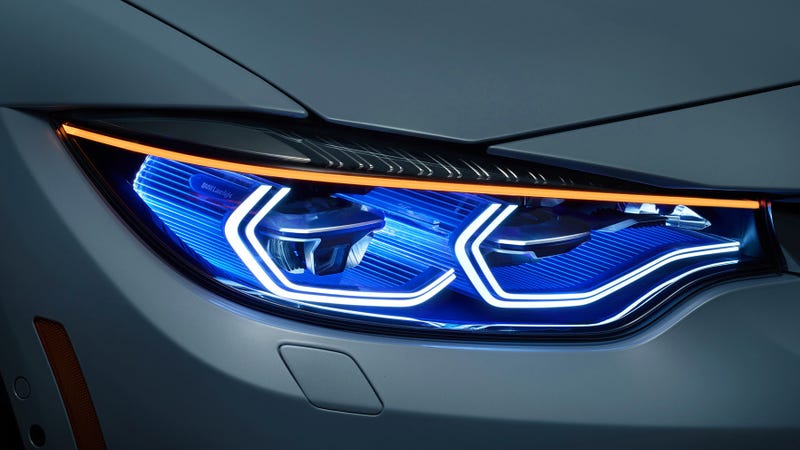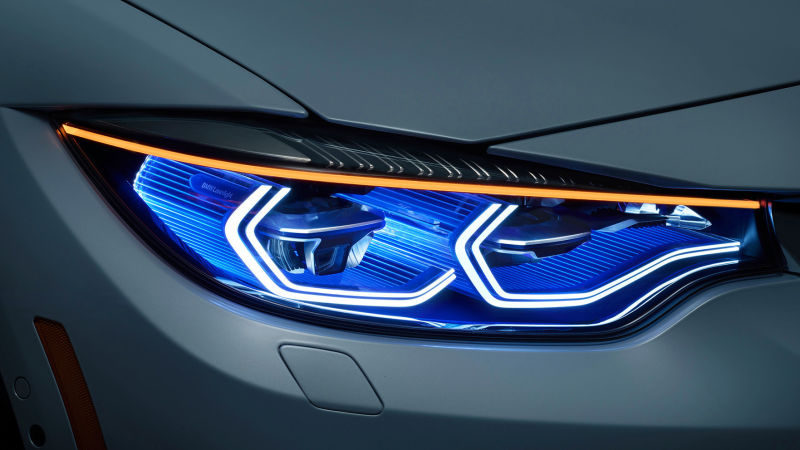
In 2016, the Insurance Institute for Highway Safety said that most OEM headlights suck. In 2018, it published another study that found that most OEM headlights were still rather bad. And now, here are America’s safety parents at AAA with some advice to alleviate the issue: We should just be like the Europeans and Canadians.
Adaptive driving beam headlights, which have been rolled out on European and Canadian roads, can increase roadway lighting “by as much as 86 percent when compared to U.S. low beam headlights,” according to the agency in a press release.
This tech isn’t currently legal in the U.S., but AAA believes that including it would dramatically cut down on driving fatalities that happen at night.
From the release:
Previous AAA research found that a majority of Americans (64 percent) do not regularly use their high beams. This means when driving at moderate speeds like 40 mph with low beams on, motorists will not have enough time to appropriately react to something or someone in the roadway. High beams, however, improve forward illumination by 28 percent in comparison and are much more effective at providing the proper amount of light when traveling at higher speeds.
With ADB, the high beams are always on and when another vehicle is detected, that area is shaded to prevent glare that would otherwise interfere with the other driver’s field of vision.
Advertisement
Another problem with U.S. standards that AAA identified apparently lies with headlight assembly. Putting together a headlight is currently seen as a stand-alone part, the outlet reports. Tests are done in a lab, which do not expose them to the same real-world situations that drivers experience.
Some cars do already have automatic high beams, which stay on until the system senses an oncoming car. But then it switches to low beams once it does, effectively leaving you temporarily with poorer visibility. Also, they don’t always work, which can be annoying for everyone involved.
To call for better lights for everyone, AAA proposed an amendment to the National Highway Traffic Safety Administration last year to let automakers fit their cars with ADB systems. But that’s probably still years away.
Advertisement
Until then, AAA recommends that drivers be proactive about their headlights. If they are cloudy or dim, clean them or get them replaced. If you are driving on dark roads, use your high beams when you can. Don’t drive too quickly when you can’t see very well.
And lastly, please—please—educate yourself on how your daytime running lights work, because I see far, far too many people driving around with just those on at night because they have no idea that their headlights aren’t on.
Advertisement
Use your lights! We are light-sensitive creatures.













